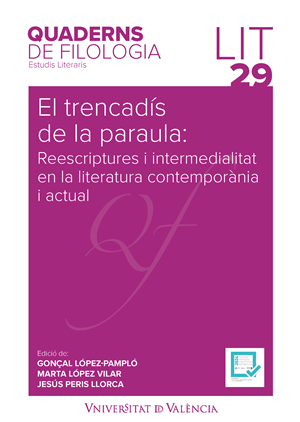Mansura, by Félix de Azúa: a free rewriting of the medieval chronicle Livre de Saint Roi Louis, by Jean de Joinville
DOI:
https://doi.org/10.7203/qdfed.29.28653Keywords:
medievalism, postmodernity, Mansura, Félix de Azúa, Jean de Joinville Abstract
Abstract
Mansura (1984), written by the Catalan writer Félix de Azúa, is, broadly speaking, a free recreation of the events transcribed in Jean de Joinville’s medieval text known as the Livre des Saintes Paroles et des Bons Faits de Notre Saint Roi Louis. This article aims to explain how the novel Mansura becomes a postmodern exercise in copying, editing and rewriting. First, we will briefly explain the rewritten mechanisms that operate in this work of medievalist fiction by means of a comparative analysis of the two texts. Then, considering all the modifications that the new version has introduced into the original work, it is important to analyse the extent to which the updating of the formal and thematic codes enhances rhetorical mechanisms such as parody and simulacrum.
 Downloads
Downloads
Downloads
Published
How to Cite
-
Abstract5
-
PDF (Español)1
Issue
Section
License
 Este obra está bajo una licencia de Creative Commons Reconocimiento-NoComercial-SinObraDerivada 4.0 Internacional.
Este obra está bajo una licencia de Creative Commons Reconocimiento-NoComercial-SinObraDerivada 4.0 Internacional.
Authors who publish with this journal agree to the following terms:
- Authors retain copyright and grant the journal right of first publication with the work simultaneously licensed under a Creative Commons Attribution License that allows others to share the work with an acknowledgement of the work's authorship and initial publication in this journal.
- Authors are able to enter into separate, additional contractual arrangements for the non-exclusive distribution of the journal's published version of the work (e.g., post it to an institutional repository or publish it in a book), with an acknowledgement of its initial publication in this journal.
- Authors are permitted and encouraged to post their work online (e.g., in institutional repositories or on their website) prior to and during the submission process, as it can lead to productive exchanges, as well as earlier and greater citation of published work (See The Effect of Open Access).




